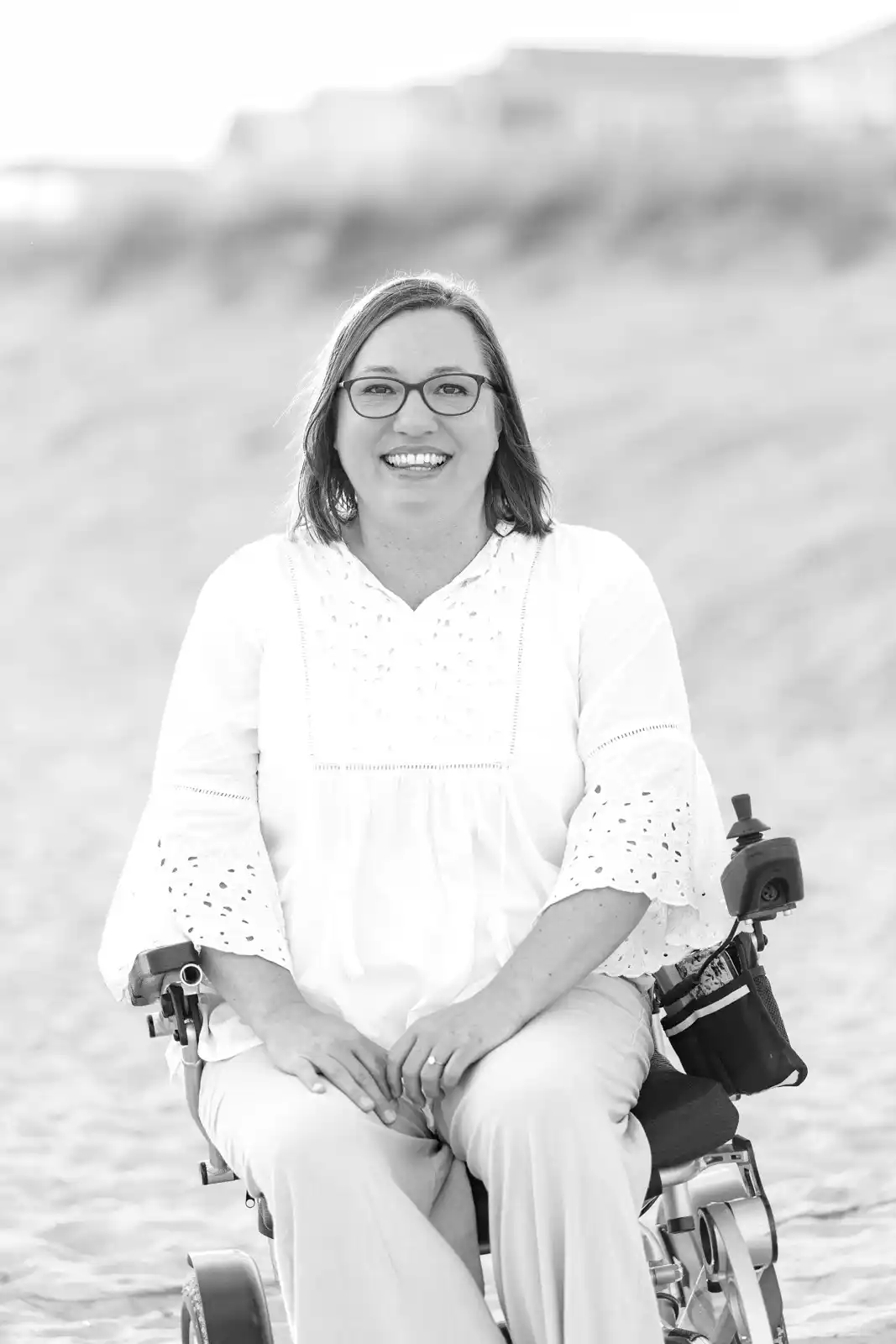War Took His Home, Refugee Camps Took His Hope: A Teen's Impossible Journey to Faith

The screech of tank treads against morning pavement wasn't part of Dejan Tahic's Tuesday routine. At exactly 7 AM, what should have been a sleepy walk to school transformed into the soundtrack of childhood's end. Artillery shells echoed in the distance like thunder that wouldn't stop, and armored vehicles lined the streets of his Bosnian hometown like steel predators claiming new territory.
Within hours, this fifteen-year-old would become one of 2.2 million people displaced by a civil war that would claim 100,000 lives. But this isn't just another refugee survival story. This is about how an ancient book written 2,000 years ago became a lifeline for someone who understood that war isn't abstract—it's about watching your elementary school become a concentration camp and learning that home can disappear overnight.
Dejan Tahic's journey from surviving on donated clothes in Hungarian refugee camps to finding eternal belonging through temple walls represents one of the most unexpected spiritual transformations you'll encounter. His story proves that sometimes our greatest upheavals become the foundation for our most beautiful discoveries, and that divine love can create belonging anywhere—even when tanks roll through your neighborhood at breakfast time.
When Artillery Shells Replace School Bells
The Bosnian conflict that erupted in the early 1990s wasn't just territorial—it carved through the heart of a nation where Muslims, Catholics, and Orthodox Christians had coexisted for generations. When Serbian forces launched their campaign for "Greater Serbia," families like Dejan's faced impossible choices that would scatter loved ones across borders and continents.
The decision to send two teenagers alone to Serbia—the very nation invading their homeland—reveals the cruel mathematics of wartime survival. Dejan and his sister boarded a bus for what was supposed to be a few days of safety while their parents gathered belongings and money. Instead, closed borders would keep their family fragmented across different countries for months, turning a temporary separation into an agonizing test of endurance and hope.
Refugee camps strip away more than possessions—they attack the core of human dignity. Picture scrambling through piles of donated clothes thrown on the ground, needing permission for basic freedoms, and existing in limbo without knowing if family reunification will ever come. When your childhood school becomes a prison camp and your future becomes a question mark, survival takes on meanings you never imagined possible.
Frozen Dreams in the Great White North
Landing in Canada during a brutal winter with nothing but donated coats and phrases like "Hi, how are you?" represents the immigrant experience magnified by trauma. The temperature hit negative 30 Celsius—colder than most people will ever experience—and snow covered the ground like a white blanket hiding an entirely foreign world beneath.
The education system's approach of immediately placing Dejan into high school while he struggled with English as a Second Language created both opportunity and isolation. That first year of attending classes without understanding the language or knowing a single classmate could have destroyed many teenagers. Instead, it forged the resilience that would carry him through every subsequent challenge.
Sports became the universal language that transcended cultural barriers and created the friendships essential for teenage survival. Basketball and volleyball skills crossed linguistic boundaries, allowing Dejan to carve out space in a social ecosystem where he had arrived as a complete outsider. This pattern of building on existing strengths while adapting to new circumstances would define his approach to every major life transition.
Love Opens Doors to the Unexpected
Meeting his future wife thirteen years after arriving in Canada introduced Dejan to something completely foreign: The Church of Jesus Christ of Latter-day Saints. His honest initial response—"I really don't care what religion you are"—wasn't dismissive but reflected someone whose focus centered on the person rather than their religious label. This openness would prove essential for the spiritual journey ahead.
Walking into an LDS chapel for the first time and experiencing enthusiastic welcomes from members and missionaries represented a level of community engagement entirely new to someone whose previous religious identity had been nominal at best. The immediate invitation to meet with missionaries and explore the faith seriously created a structured path toward understanding that might otherwise have remained abstract concepts.
His girlfriend's straightforward approach—explaining that temple marriage was non-negotiable for any serious relationship—presented Dejan with a choice familiar to many converts: explore the faith alongside the relationship, or walk away from both. Her refusal to pressure him beyond this clear boundary actually provided the space he needed to investigate the church authentically rather than feeling coerced into conversion.
When Ancient Battles Heal Modern Wounds
The Book of Mormon's extensive war chapters might feel tedious to readers who haven't experienced conflict, but for someone who had lived through the Bosnian civil war, these stories became deeply personal. The accounts of Captain Moroni, the title of liberty, and entire civilizations defending their families resonated with someone who understood that war isn't theoretical—it's about protecting the people you love from forces determined to destroy everything familiar.
Reading about ancient prophets ministering to displaced people while refugees scatter across continents creates connections that transcend time and geography. The universal themes of displacement, maintaining faith during crisis, and experiencing divine deliverance speak directly to anyone who has lived through similar upheaval. For Dejan, these weren't just religious narratives—they validated that his experiences fit into a larger story of God working through human suffering.
The gradual development of his testimony—not through dramatic revelation but gentle spiritual confirmation over time—reflects how many people actually develop faith. The feeling that the book was "written just for him" demonstrates scripture's ability to feel personally relevant regardless of original context or circumstances. This individual application of ancient text shows how spiritual truth transcends cultural and temporal boundaries.
Sacred Ordinances Restore What War Destroys
The doctrine of eternal families carries special weight for someone who experienced forced family separation and lost his mother at age 31. The promise that family relationships continue beyond death offered hope that transcended the temporary reunifications and permanent losses that had defined his refugee experience. This wasn't abstract theology—it answered years of questioning about permanence and security.
The temple sealing ceremony represented far more than religious ritual for Dejan—it symbolized the restoration of everything war had stolen. His reflection that being sealed provided "roots, future, and home" after years of having none illustrates how spiritual ordinances can offer what no government program or resettlement assistance could deliver: eternal belonging that no earthly conflict can destroy.
The connection he felt to his deceased mother through temple ordinances addresses one of humanity's most painful realities: the finality of death. For someone whose family had been scattered by war and diminished by loss, the promise of eternal family relationships offered healing that went beyond individual conversion to encompass generational hope and restoration.
From Refugee to Emergency Responder
Dejan's current pursuit of a public health degree at BYU-Idaho while working full-time and raising four daughters represents the determination that often defines immigrant success stories. His decision to leave construction work for health reasons and pursue emergency management training demonstrates how lived experience can shape career aspirations in unexpected directions. Someone who has experienced displacement understands disaster preparedness and emergency response in ways that transcend textbook knowledge.
His interest in organizations like the Red Cross or Alberta Emergency Management Agency represents a full-circle moment—from someone who received emergency assistance to someone preparing to provide it. This transformation of personal experience into service opportunities shows how individual healing can create broader community benefit and meaningful career purpose.
Balancing full-time employment, full-time education, marriage, and parenting four young daughters while pursuing complete career change illustrates the kind of sacrifice that characterizes second-generation immigrant achievement. These accomplishments represent more than personal success—they fulfill the promise that resettlement programs make about displaced people becoming valuable community contributors.
Universal Lessons from an Extraordinary Journey
Dejan's transformation offers insights that extend far beyond religious conversion or refugee experiences:
Five Key Principles from His Journey:
Openness creates unexpected opportunities: His willingness to explore an unfamiliar religion because someone important to him practiced it shows how relationships can open doors to experiences we might otherwise dismiss completely.
Personal connection makes ancient truth relevant: Scripture and spiritual teachings become meaningful when they connect to lived experience, regardless of how different our circumstances might be from original contexts.
Community belonging facilitates spiritual seeking: The immediate welcome he received at church created space for exploration that made deeper investigation possible—communities either help or hinder spiritual growth.
Gradual transformation often surpasses dramatic conversion: His gentle, sustained spiritual confirmation over time represents how authentic faith development actually occurs for many people, rather than through sudden dramatic experiences.
Authentic spiritual change leads to increased service: His career shift toward emergency management reflects how genuine spiritual transformation naturally flows into opportunities for helping others facing similar challenges.
The intersection of displacement, love, scripture study, and community belonging in Dejan's story shows how spiritual journeys rarely follow predictable patterns. His evolution from Muslim refugee to sealed Latter-day Saint father pursuing higher education represents the kind of dramatic life change that reveals faith's capacity to create meaning from suffering and purpose from displacement.
Your Faith Journey Begins with You
Dejan Tahic's story challenges assumptions about faith, belonging, and spiritual growth that many of us carry without examination. Whether you're facing displacement of your own—geographic, emotional, or spiritual—his journey offers hope that new foundations can be built even after everything familiar has been destroyed or stripped away.
If you're curious about exploring faith traditions that emphasize eternal families and community belonging, consider visiting local congregations or connecting with missionaries who can answer questions without applying pressure. If you're already on a spiritual path, Dejan's experience reminds us that scripture study becomes more meaningful when we actively look for personal applications rather than treating it as historical information.
For those interested in refugee assistance or emergency management, his career transition shows how personal experience can become professional calling. Organizations like the Red Cross, local emergency management agencies, and refugee resettlement programs consistently need volunteers and professionals who understand displacement through personal experience rather than just academic study.
Most importantly, Dejan's story reminds us that transformation remains possible at any life stage, under any circumstances, and through the most unexpected pathways imaginable. Whether tanks are rolling through your neighborhood or you're simply searching for deeper meaning in ordinary circumstances, the journey toward belonging and purpose stays available to anyone willing to remain open to possibilities they never imagined could exist.







Comments